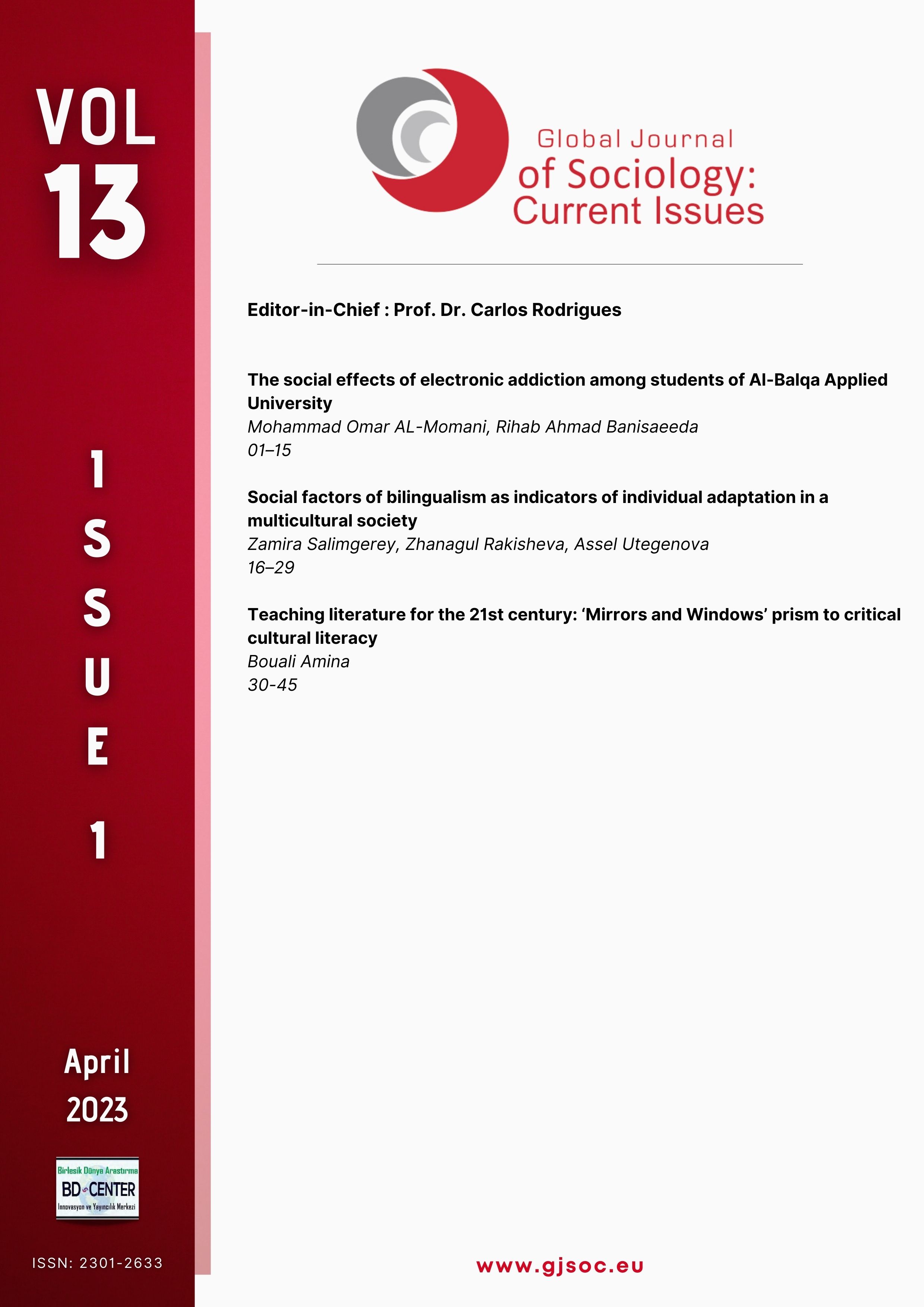Social factors of bilingualism as indicators of individual adaptation in a multicultural society
Main Article Content
Abstract
Bilingualism is a subject of close attention to many scholars. According to statistics, the English language by popularity is in first place among bilingual speakers. Kazakhstan’s education policy also relies more on reforms for the development of a bilingual society on the principle of language constructions – Kazakh – English, Kazakh – Russian. In this article, we consider social factors, contributing to the development of bilingualism in the period of professional formation of Kazakhstan youth. This article provides a review of scientific literature, the results of the experiments carried out earlier in some countries of the world, and the results of a pedagogical experiment carried out by teachers of the English language at Aktobe Regional State University named after K. Zhubanov (Kazakhstan). Based on the findings, the authors of the article discovered that for students, motivational, environmental and academic factors of learning a foreign language as a method for intercultural communication, also as an instrument, allowing to expand opportunities for career development or getting prestigious work are important.
Keywords: Bilingualism, English language, foreign language, pedagogical experiment;
Downloads
Article Details
- Authors retain copyright and grant the journal right of first publication with the work simultaneously licensed under a Creative Commons Attribution License that allows others to share the work with an acknowledgement of the work's authorship and initial publication in this journal.
- Authors are able to enter into separate, additional contractual arrangements for the non-exclusive distribution of the journal's published version of the work (e.g., post it to an institutional repository or publish it in a book), with an acknowledgement of its initial publication in this journal.
- Authors are permitted and encouraged to post their work online (e.g., in institutional repositories or on their website) prior to and during the submission process, as it can lead to productive exchanges, as well as earlier and greater citation of published work (See The Effect of Open Access).
